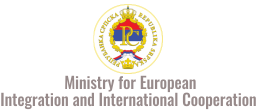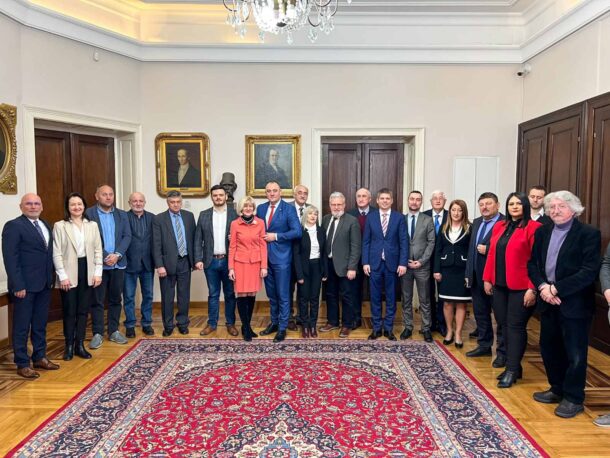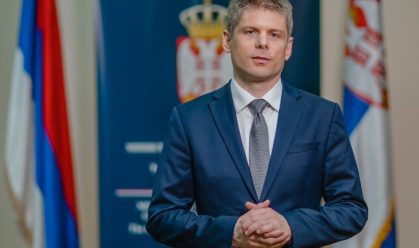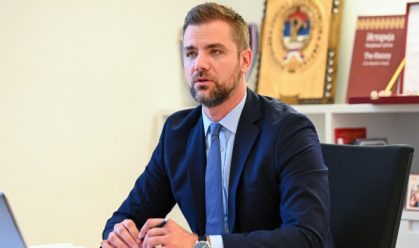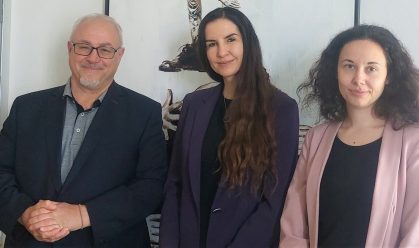The thirteenth Conference of Serbian National Organizations from the Countries of the Region was held at the Matica Srpska in Novi Sad.
The Director of the Directorate for Cooperation with the Diaspora and Serbs in the Region, Arnaud Gouillon, said that during the preceding year the Directorate had supported numerous projects in the fields of economy, culture and language with 44 million dinars, which were implemented by organizations of Serbs from the region.
‘For the first time, the largest portion of the funding was allocated to the projects of economic empowerment of Serbian returnee households in the Federation of BiH, namely in Bosanski Petrovac, Grahovina and Posavina. A total of 9 million dinars was set aside for them, and invested in livestock, agricultural equipment and machinery. We plan to expand such projects to Serbian communities in Montenegro,’ Gouillon said at the Conference.
He also pointed out the work on protecting property rights of Serbs in BiH, the opening of a legal aid office in Belgrade, and launching of the Srpska Zemlja portal as a kind of online office.
‘We are also active in the field of protecting minority rights of the Serbian people. For the first time after 10 years, we organized a meeting in Belgrade of two co-chairs of the intergovernmental mixed commission on minorities between Serbia and Romania. The goal is to solve specific problems that our compatriots face in everyday life. Also, 17 years after the signing of the Agreement on the Protection of Minorities with North Macedonia, a mixed commission was formed and the first session with the representatives of Skopje was held in Belgrade,’ Gouillon underlined.
The Provincial Secretary for Regional Development, Interregional Cooperation and Local Self-Government, Aleksandar Sofić, said that the Provincial Government provided strong support to the Serbian people in the region through the Fund for Refugees, Displaced Persons and for Cooperation with Serbs in the Region.
‘A few days ago, the Provincial Government set aside 12 million dinars for the purchase of a house in Berane, which, as a Serbian House, will be a gathering point for all Serbian organizations from that municipality,’ said Sofić.
He announced that the Provincial Government, together with the Government of the Republic of Srpska, would finance the construction of two production halls in Milići, in the Republic of Srpska.
‘Together, we will invest 500,000 euros in the implementation of the project that will facilitate investors’ coming to the area, create new jobs, and thus provide a better life for citizens in both the municipality of Milići and surrounding places in Podrinje,’ said Sofić.
The Director of the Fund for Refugees, Displaced Persons and for Cooperation with Serbs in the Region, Duško Ćutilo, said that during the preceding year the Fund had supported the work and various projects of organizations and institutions of Serbs in the region with a much larger budget than before.
‘1.5 million dinars have been provided for publishing in the Serbian language in the countries of the region that are members of the Conference of Serbian National Organizations from the Countries of the Region,’ Ćutilo pointed out.
The Chairman of the Committee on the Diaspora and Serbs in the Region in the National Assembly, Milimir Vujadinović, emphasized that the concept of relations with our people in the region had changed significantly during the past few years.
‘For the first time, funds were planned in the Serbian budget for infrastructure projects across the state border, the airport in Trebinje and construction of hydropower potentials on the Drina, and assistance was provided to municipalities in Srpska, Federation of BiH, Montenegro and Slovenia,’ said Vujadinović.
The Conference was attended by representatives of organizations from Serbia, Romania, Hungary, Slovenia, Croatia, Srpska, Macedonia, Albania and Montenegro, who discussed the position of the Serbian people in the region and joint activities to improve their status.
Source and photo: Directorate for Cooperation with the Diaspora and Serbs in the Region

